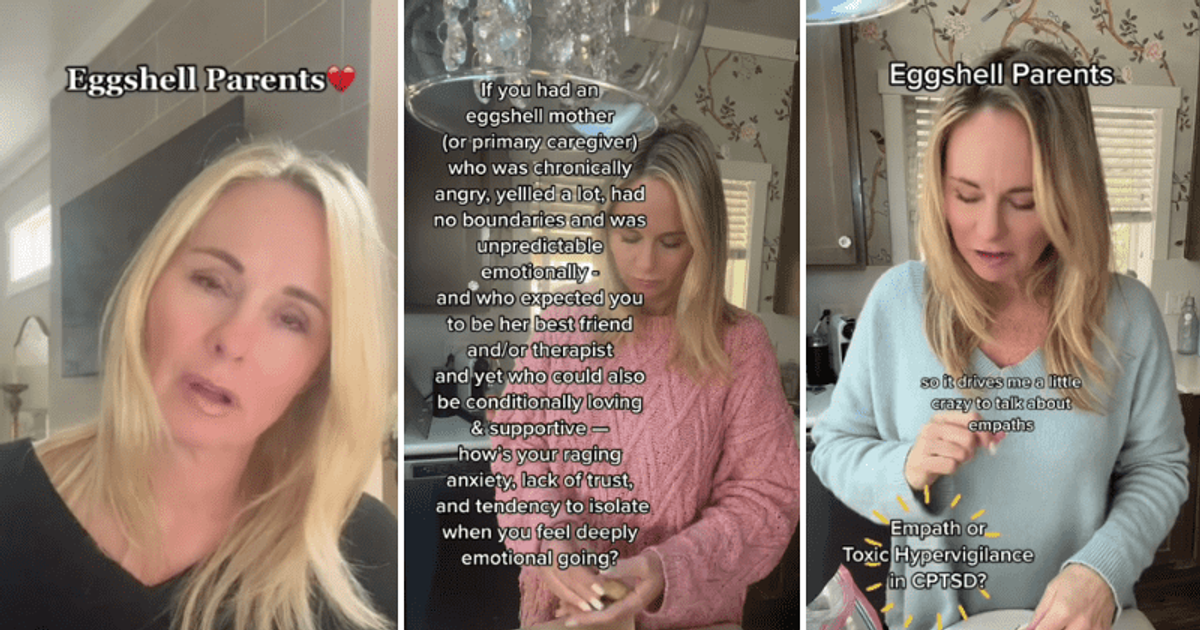There has been a sudden surge in various parenting styles promoted by influencers on social media platforms. Regardless of the approach parents choose to raise their children, their actions, mood fluctuations, and words can significantly impact a child’s development. Consequently, many parents are striving to cultivate a nurturing and dependable environment for their children. Recently, Dr. Kim Sage, a licensed clinical psychologist, has garnered attention on TikTok for her content focusing on a parenting style known as ‘eggshell parenting.’
A considerable number of online users were intrigued by this novel concept, prompting Dr. Sage to elucidate the intricacies of ‘eggshell parenting’ through a series of TikTok videos. She characterizes this parenting approach as creating an atmosphere where children feel as though they are constantly treading on eggshells due to the unpredictable nature of a parent’s mood and behavior, often devoid of any forewarnings or signals. Dr. Sage elaborates on how ‘eggshell parenting’ can render a child hyper-vigilant about anticipating what may transpire next.
In her videos, Dr. Sage emphasizes the detrimental effects of ‘eggshell parenting,’ stating, “Even if you’re loving and safe and wonderful, if it follows that you can be unsafe at the core, you are not safe.” She highlights that the parent’s mood resembles a roller coaster ride, characterized by extreme highs and lows, creating emotional unpredictability and a sense of insecurity for the child. Additionally, she identifies verbal abuse as a prominent manifestation of ‘eggshell parenting.’
Furthermore, Dr. Sage discusses how ‘eggshell parents’ may engage in behaviors such as making their children feel inadequate, issuing threats, employing punishment as a means of control, and resorting to intimidation and shaming tactics. These parents are inclined to guilt-trip, ridicule, invalidate their children’s emotions, and gaslight them. Living under such conditions, children are constantly on edge, unsure of how to protect themselves or what actions to take to safeguard their well-being.
Dr. Sage underscores the long-term repercussions of growing up in an ‘eggshell parenting’ environment, noting that individuals raised in such households often develop maladaptive coping mechanisms that stem from their adverse childhood encounters. The perpetual state of vigilance and anticipation for potential threats can lead to heightened emotional responses and bodily reactions. However, Dr. Sage offers a glimmer of hope by suggesting that recognizing and acknowledging one’s tendencies towards ‘eggshell parenting’ is a crucial step towards breaking the cycle.
By taking accountability for their behaviors and offering apologies to their children following moments of anger or outbursts, parents can initiate positive change and disrupt the toxic parenting cycle. Through self-regulation and introspection, parents can alleviate their children’s anxiety, prevent overanalysis of situations, and foster a healthier social and mental development trajectory for their offspring.

